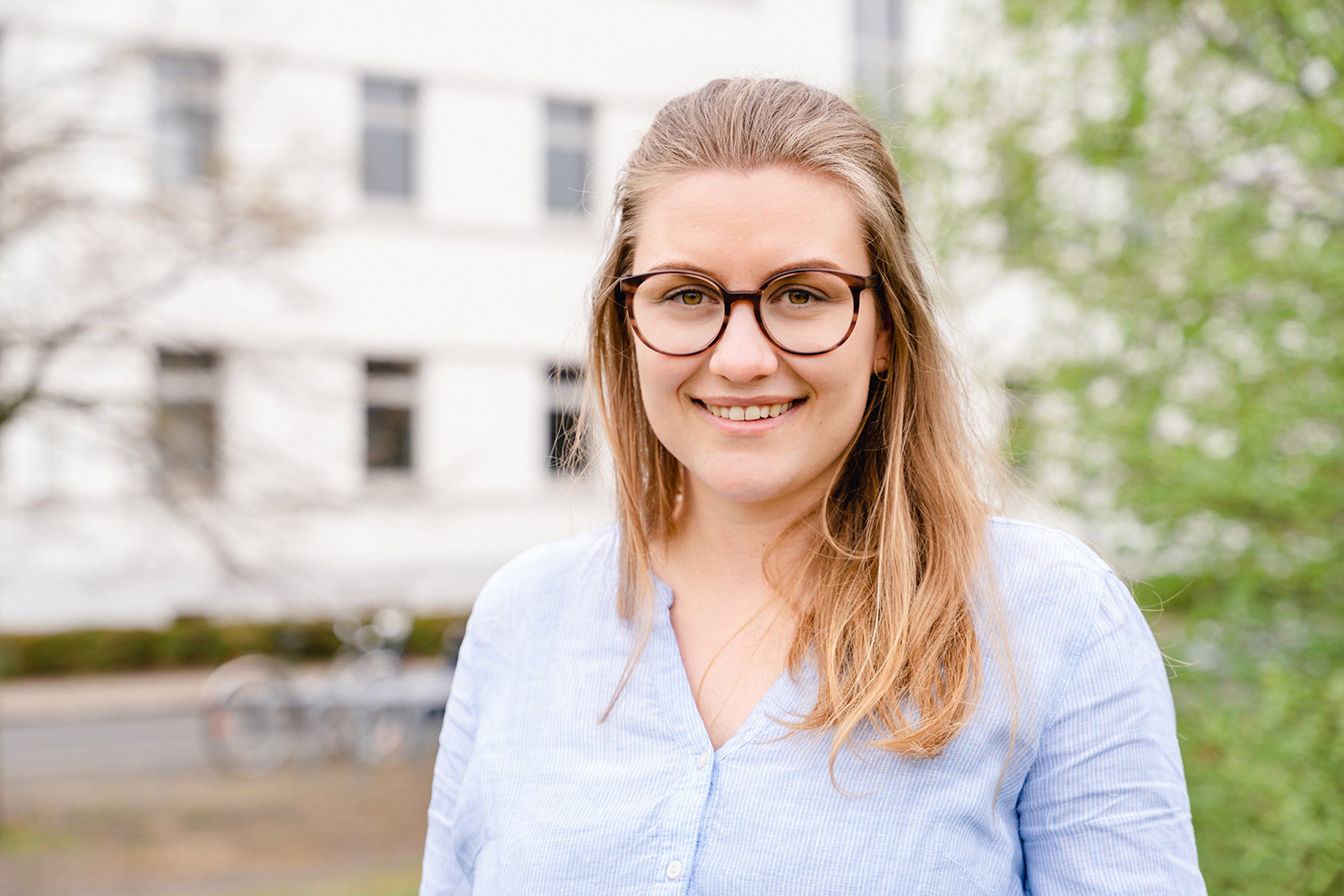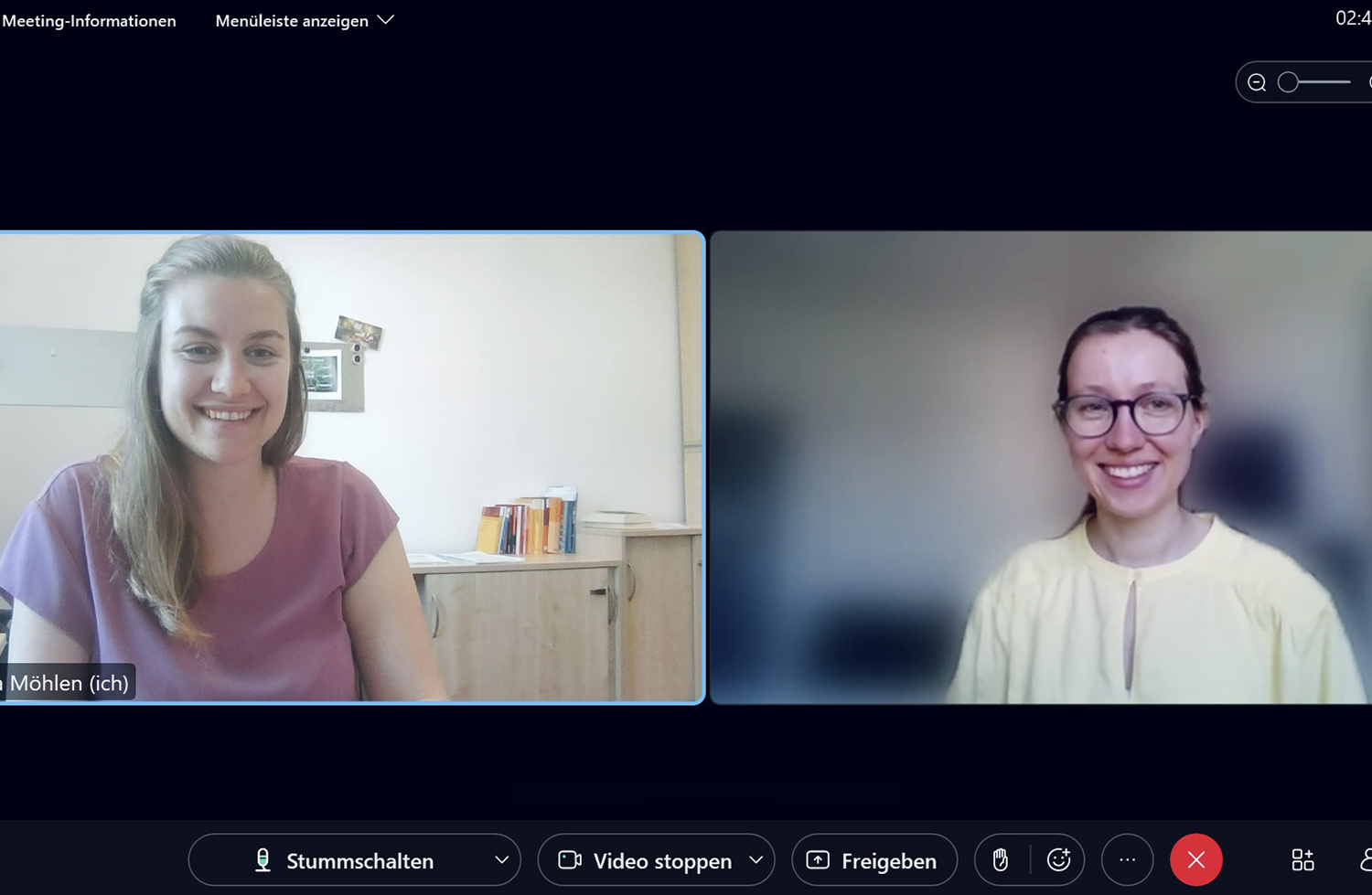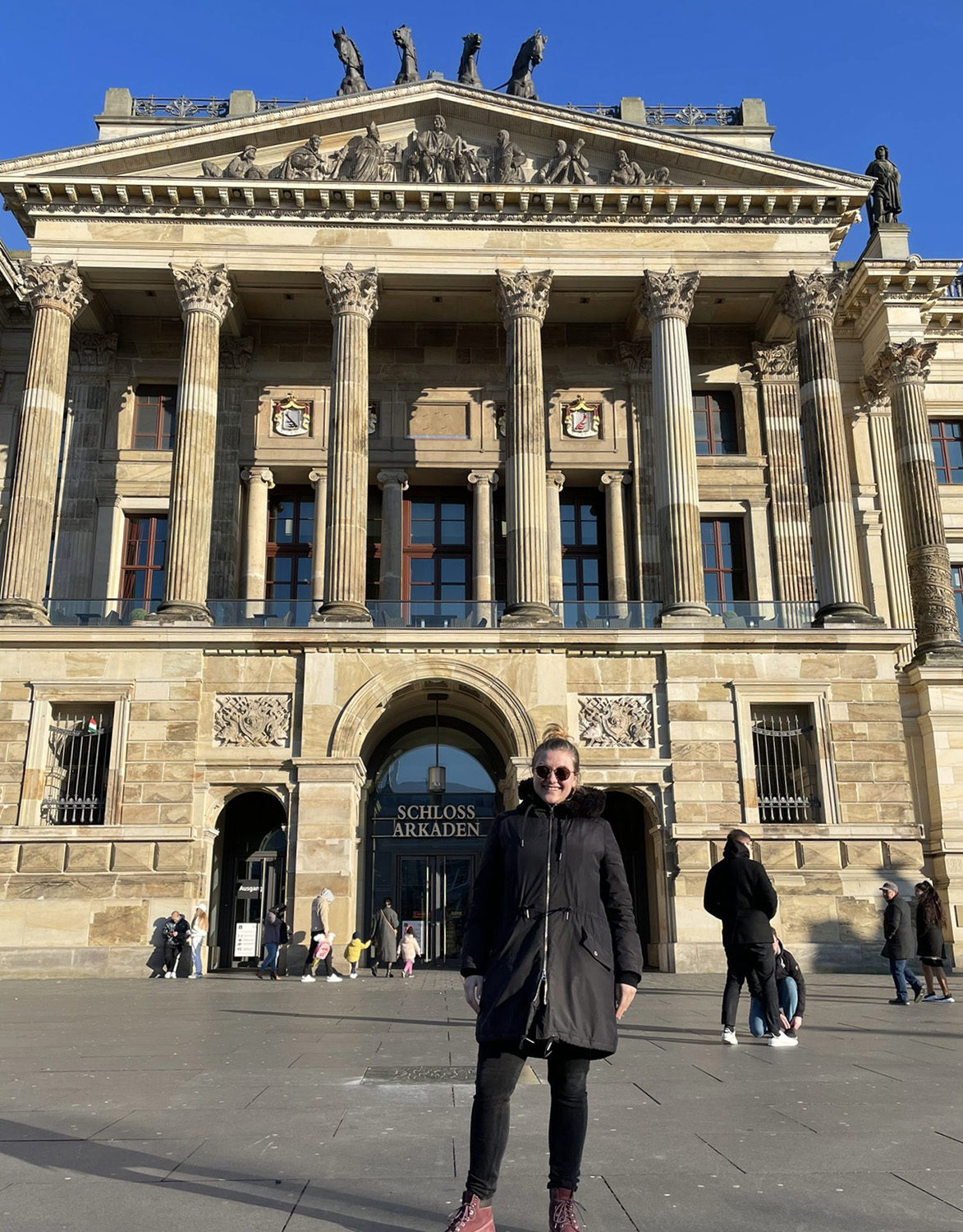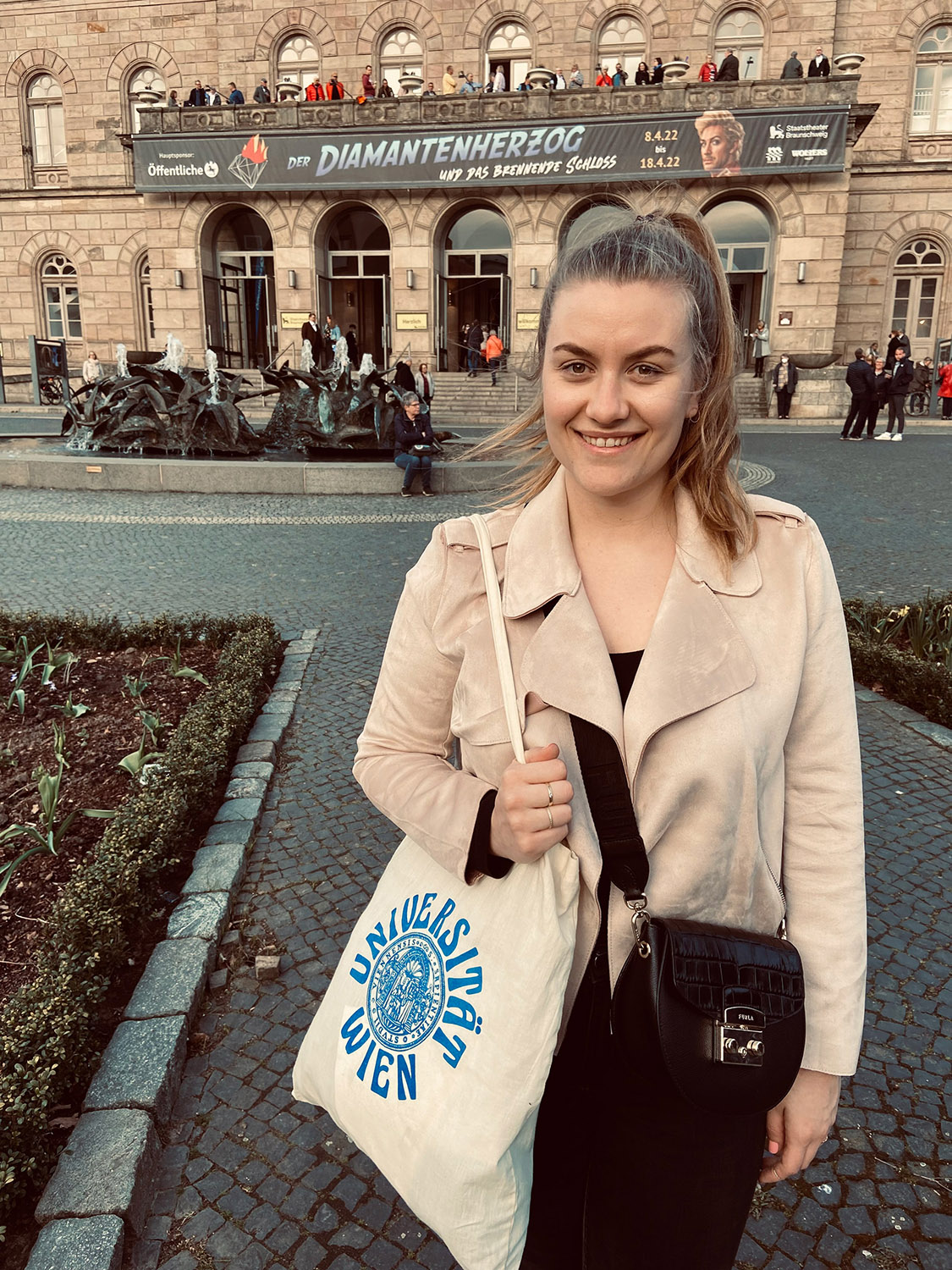Mail from … Braunschweig Lisa-Katharina Möhlen from Vienna reports about her experiences as a research assistant at the Institute of Educational Sciences

Lisa Möhlen is a research assistant at the Institute of Educational Science in the Department for School Education. Photo: Simone Fürst/TU Braunschweig
General information
This is what I do in Braunschweig
I am a research assistant at the Institute of Educational Science in the Department for School Education. Here I am researching within the framework of a binational PhD project (Cotutuelle de thesis) in cooperation between TU Braunschweig and University of Vienna on the question of which factors influence the stagnating implementation of international law on inclusive education in Germany and Austria and what role digitalisation plays in school development. In both Germany and Austria, the inclusive school system is developing very slowly, although there has been an international right to inclusive education for almost 20 years.
The doctoral project is funded by the Austrian Academy of Sciences (ÖAW).
My doctoral funding runs for a total of …
three years. As my research relates to both Germany and Austria, I will commute between Braunschweig and Vienna during the three years, e.g. for data collection.
That’s why I decided to stay at TU Braunschweig
First, I worked for a year in the BMBF-funded research project Gelindi under the direction of Professor Julia Gerick at TU Braunschweig. Then, in 2021, I received approval from Austria for funding for my submitted PhD project at the University of Vienna, supervised by Assistant Professor Michelle Proyer.
Since my connection to TU Braunschweig was very important to me, the scholarship provider made it possible for me to do a PhD across institutions and countries. The expertise and networking of Professor Julia Gerick in the field of school education with a focus on school development and digitalisation now forms another pillar of my project to investigate the segregative schooling of students with and without disabilities.

“Despite the Corona pandemic and many online meetings, the team integrated me perfectly from the start.” Photo: Lisa Möhlen/TU Braunschweig
What do you want to do after your stay and can you imagine staying in Braunschweig?
After my stay in Braunschweig and at TU Braunschwieg, which is initially limited by the scholarship period of three years, I would like to continue working in science. I remain open to new things and possibly a change of location.
Living locally
This is how I live in Braunschweig
In my own flat in a quiet and green district.
What distinguishes research in Germany from that in Austria?
In my opinion, the biggest difference in the science enterprise between Germany and Austria is that there are significantly more financial and human resources in Germany. I also attribute this to political commitment. In Austria, my positions were always financed by third-party funded projects. But I also see this as the reason that internationalisation in Austria has progressed very well. In Braunschweig, however, internationalisation is well on its way through various mobility opportunities. The International House is the central and supportive authority for my project, and I feel very well looked after.
As far as the bureaucratic channels are concerned, Germany and Austria are much alike. As a scientist, I have to do a lot of paperwork and I have less time for research activities.
What is the difference between everyday life in Germany and in my home country?
Since Austria and Germany are neighbouring countries in Central Europe and I have also lived in Central America and the Middle East, life in Austria and Germany is very comparable for me. Nevertheless, traditions and the influence of the Catholic Church significantly shape the Austrian society. In Braunschweig, I experience a much more liberal togetherness and a great openness to being different.
My working day is much more structured and organised than in Austria, but at the same time this limits the scope for flexibility and creativity. I find it very positive that there are more financial, personnel and material resources at TU Braunschweig than at University of Vienna, for example.

“Obwohl Braunschweig natürlich deutlich kleiner ist, als Wien, gefällt es mir hier super!” Photo: Lisa Möhlen/TU Braunschweig
That’s what I learned here in the first three days
Day 1: That the openness of colleagues and low hierarchical levels are a good prerequisite for a productive and pleasant working atmosphere.
Day 2: That although setting up the work infrastructure doesn’t happen overnight, an office as well as hardware and software for working in a home office were available to me right from the start. That was not a matter of course for me.
Day 3: That the settling-in period takes much longer than a week, as (informal) structures and working methods differ from those in Vienna.
The biggest challenge(s) during my stay so far was …
On the one hand, the change from a big to a small city and the punctuality at appointments, because in Braunschweig everyone is already there 5 minutes before, while in Vienna the last ones arrive 10 minutes later.
What I will take with me from here to Vienna
- the mindfulness and appreciation attributed to the work-life balance in the work environment.
- a small lion statue from the tourism shop opposite the Small Castle
- a bottle of Jägermeister
Good to know
I would like to give this tip to other international students or academics who are planning or are currently studying abroad in Germany:
Make sure you think about –
- what your goals are for your stay.
- Think about whether you want to go to a big city or a small town and where it is located in Germany. There are cultural differences between northern, eastern, southern and western Germany
- whether the exchange is organised privately or institutionally. Institutional has the advantage that there are contact persons like the indispensable Annika Ewe (International House).
- whether you are organised and that you can also ask for support.
- What type of funding (scholarship, third-party funding, private) is possible for you.
In my opinion, this is something you should definitely try in Braunschweig/Germany:
In spring: a walk in Riddagshausen with a coffee break in Schäfers Ruh.
In summer: A pedalo tour on the river Oker
In autumn: A visit to the Natural History Museum
In winter: Of course, a visit to the Christmas market and the winter theatre.

“The cultural offerings in Braunschweig are also quite enjoyable – for example, the performances at the State Theatre.” Photo: Lisa Möhlen/TU Braunschweig
Pandemic
How the pandemic affected my stay
Despite my transfer to TU during the pandemic, the team immediately integrated me into the daily work routine. Therefore, the pandemic did not influenced my tasks, except that the face-to-face meetings had to take place online. Therefore, I am even more pleased that the pandemic is hopefully coming to an end.
Despite this, this is how I have most liked to pass the time
Especially with walks in the countryside (Bürgerpark, Stadtpark, Riddagshausen Lakes).
